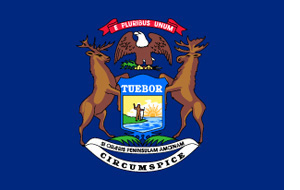Same-Day Registration
More than a dozen states plus the District of Columbia now offer same-day registration (SDR), allowing qualified residents to go to the polls or an election official’s office, before or on Election Day, register to vote, and then cast a ballot, all on the same day.
In most states, voters must register well before Election Day. The deadline varies, with states requiring registration eight to 30 days before the election.

Maintaining a period between registration and voting allows election officials time to verify the qualifications and residency of the voter, thus reducing the opportunity for vote fraud. Once an unverified and unqualified voter casts a ballot and it is counted, there is no way to go back and disqualify the illegally cast ballot.
Combining registration and voting on the same day causes long lines and unnecessary chaos on a day when millions of people are voting. The congestion caused by same-day registration can overwhelm poll workers and create long lines for registered voters. Same-day registration provides unnecessary pressure on local election officials who are responsible for providing up-to-date voter registration lists to each polling place.
As Wisconsin Gov. Scott Walker observes, “States across the country that have same-day registration have real problems because the vast majority of their states have poll workers who are wonderful volunteers, who work 13-hour days and who in most cases are retirees,” he said. “It’s difficult for them to handle the volume of people who come at the last minute. It’d be much better if registration was done in advance of Election Day. It’d be easier for our clerks to handle that.”
The unverified registration process favors those political candidates who can round up otherwise indifferent citizens who know little about what’s on the ballot. An informed citizenry is the bulwark of a constitutional, democratic republic.
ACRU Commentary
How to Fraud-Proof Elections
By Edwin Meese III and Ken Blackwell Once upon a time, Americans got together on Election Day, went to the polls, and chose our leaders. Voting on the same day helped bind us together as self-governing citizens in a free republic. It even felt like a national holiday -- Independence Day without the fireworks. Except for those traveling or who are infirm and who can use absentee ballots, Election Day puts everyone in the same boat. As a civic exercise in equality, it is unparalleled. It has the added advantage of making vote fraud more difficult, since there is a very short window in which to commit it. But over the past few decades, election laws have been relaxed in the name of convenience, with "reforms" such as early voting, same-day registration, Sunday and evening voting hours, no-excuse absentee voting and allowing out-of-precinct ballots. All of these increase the possibility of vote fraud. At the same time, despite a clear mandate in the National Voter Registration Act (also known as the Motor Voter Law) to keep accurate registrations, the system has grown lax; election authorities have left millions on the voter rolls who should not be there.
Here Comes the 2014 Voter Fraud
In the past few months, a former police chief in Pennsylvania pleaded guilty to voter fraud in a town-council election. That fraud had flipped the outcome of a primary election. Former Connecticut legislator Christina Ayala has been indicted on 19 charges of voter fraud, including voting in districts where she didn't reside. (She hasn't entered a plea.) A Mississippi grand jury indicted seven individuals for voter fraud in the 2013 Hattiesburg mayoral contest, which featured voting by ineligible felons and impersonation fraud. A woman in Polk County, Tenn., was indicted on a charge of vote-buying--a practice that the local district attorney said had too long "been accepted as part of life" there. Now come the midterm elections on Nov. 4. What is the likelihood that your vote won't count? That your vote will, in effect, be canceled or stolen as a consequence of mistakes by election officials or fraudulent votes cast by campaign workers or ineligible voters like felons and noncitizens?
Betrayal by Any Other Name
What would you call it if some Americans went overseas to the United Nations Human Rights Council and gave aid and comfort to some of the most repressive regimes on the planet?
Playing the Race Card before Election Day
Is it racist to require people to show a photo ID when they vote? You need a photo ID for nearly any meaningful transaction, such as cashing checks, including government checks. If this simple requirement "suppresses" the vote, maybe we need to ask why it's such a great idea to push for universal suffrage for every adult who is merely breathing. Of course, even this latter requirement would suppress the vote in Chicago and New Orleans, where dead people get to vote all the time - and do so cheerfully.
News
Voting in California? You Don’t Need to Register Early
5/31: California's new same-day registration policy makes it easier than ever to vote in the upcoming election.
Michigan’s Proposed Constitutional Amendment Includes Automatic Voter Registration
2/16: A constitutional amendment in Michigan would allow same-day registration, automatic registration, expanded absentee voting, and more time for military members to cast ballots.
Washington State Democrats Push for Automatic and Same-Day Registration
2/20: Democratic legislators in Washington State are pushing to pass laws expanding places residents can register to vote, enabling automatic registration for teens, and allowing same-day voter registration.
Saratoga County Rejects Cuomo’s Call for Early Voting, Same-Day Registration
2/27: Saratoga County's Board of Supervisors rejected the state's call for same-day registration and early voting as an unnecessary and unfunded mandate.
Same-Day Registration Debated in Washington
2/7: The Washington House committee is debating a same-day voter registration bill already approved by the state senate.
Cuomo Unveils ‘Democracy Agenda’ of Ad Transparency, Election Security and Voting Reforms
12/22: If passed, Cuomo’s early voting proposal would allow eligible New Yorkers to cast ballots up to 12 days before Election Day.







